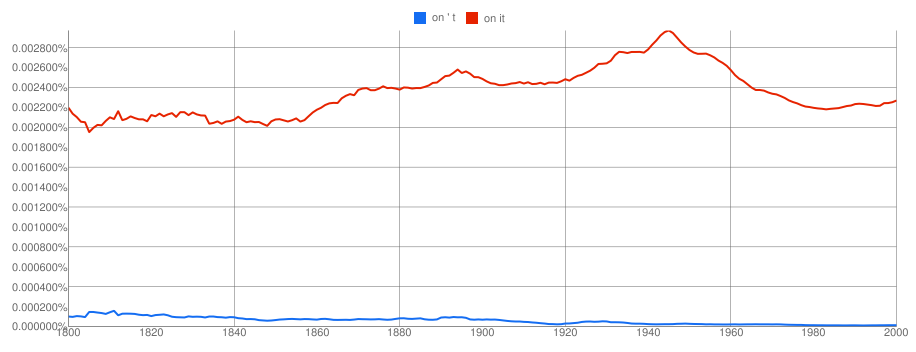The February 18th-24th edition of The Economist has an article titled "Neurons v free will" in which the author, Anthony Gottlieb begins by quoting Dr. Johnson's statement about free will:
"Sir ... we know our will is free, and there's an end on't."
Gottlieb echoes the archaism (?) in the last paragraph of his article:
Stepping back from investigations of the brain to look at our actions in the context of everyday life isn't quite the clincher that Dr Johnson would have liked. But it is a good beginning on't."
Clearly the writer uses the contraction on't here as part of a stylistic bookend to the opening quote. Just as clearly, though, the apostrophe was meant in print to indicate the spoken suppression of an unstressed syllable: ont vs. on it.
From Google NGrams I observe that the printed use of the contraction was never great and is in fact dying out, although it has maintained a surprising persistence nonetheless, waiting till the last 30 years or so before flatlining completely.

Still, the large disparity could be due to other factors, such as the arguable preference of book editors and writers to favor spelling out clearly the words involved in many phonological contractions. Consider how often a phrase that is pronounced it was raining cats 'n' dogs is rendered in print as it was raining cats and dogs. Even more to the point, words ending in -ing are normally printed with the final g but often spoken without it: something's going on is often heard as somethin's goin' on.
My question, mainly to speakers of British English since I have never heard the contraction used in the U.S., is whether this phonological "short'nin'" survives in the speech of any British dialect today. Can anyone put an end on't for me?
